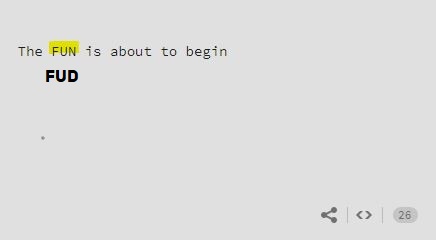What does this mean? 2021 might not be as great a year for the stock
As 2020 as 2020 was (no typo here), 2020 was a great year for some investors. If you invested in some stocks, you could have gotten 10 times your money. Crypto got more adoption etc
Going into 2021, the phrase “regression to the mean” has been on my mind. The phrase simply means
What does this mean? 2021 might not be as great a year for the stock
If you’re looking to invest, do it for
“When the student is ready, the teacher will appear” - Lao Tzu
When the time is right, the right opportunity for you will present itself. You just have to prepare
2020 has given some of us a taste of supernormal returns. People were doubling their funds in days/weeks etc. When we see returns like these, it isn’t easy to rate any investment that’s not offering something close to that in a similar time frame
But here’s
Am I saying you
The 2 main things investment does for us is grow our funds AND protect our funds.
High-risk options like stocks, forex, crypto offer great
Two ways of doing this are: not investing what you cannot afford to lose in high-risk options and diversifying your investment.
More from Trading
You May Also Like
I just finished Eric Adler's The Battle of the Classics, and wanted to say something about Joel Christiansen's review linked below. I am not sure what motivates the review (I speculate a bit below), but it gives a very misleading impression of the book. 1/x
The meat of the criticism is that the history Adler gives is insufficiently critical. Adler describes a few figures who had a great influence on how the modern US university was formed. It's certainly critical: it focuses on the social Darwinism of these figures. 2/x
Other insinuations and suggestions in the review seem wildly off the mark, distorted, or inappropriate-- for example, that the book is clickbaity (it is scholarly) or conservative (hardly) or connected to the events at the Capitol (give me a break). 3/x
The core question: in what sense is classics inherently racist? Classics is old. On Adler's account, it begins in ancient Rome and is revived in the Renaissance. Slavery (Christiansen's primary concern) is also very old. Let's say classics is an education for slaveowners. 4/x
It's worth remembering that literacy itself is elite throughout most of this history. Literacy is, then, also the education of slaveowners. We can honor oral and musical traditions without denying that literacy is, generally, good. 5/x
As someone\u2019s who\u2019s read the book, this review strikes me as tremendously unfair. It mostly faults Adler for not writing the book the reviewer wishes he had! https://t.co/pqpt5Ziivj
— Teresa M. Bejan (@tmbejan) January 12, 2021
The meat of the criticism is that the history Adler gives is insufficiently critical. Adler describes a few figures who had a great influence on how the modern US university was formed. It's certainly critical: it focuses on the social Darwinism of these figures. 2/x
Other insinuations and suggestions in the review seem wildly off the mark, distorted, or inappropriate-- for example, that the book is clickbaity (it is scholarly) or conservative (hardly) or connected to the events at the Capitol (give me a break). 3/x
The core question: in what sense is classics inherently racist? Classics is old. On Adler's account, it begins in ancient Rome and is revived in the Renaissance. Slavery (Christiansen's primary concern) is also very old. Let's say classics is an education for slaveowners. 4/x
It's worth remembering that literacy itself is elite throughout most of this history. Literacy is, then, also the education of slaveowners. We can honor oral and musical traditions without denying that literacy is, generally, good. 5/x























